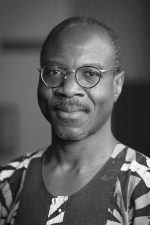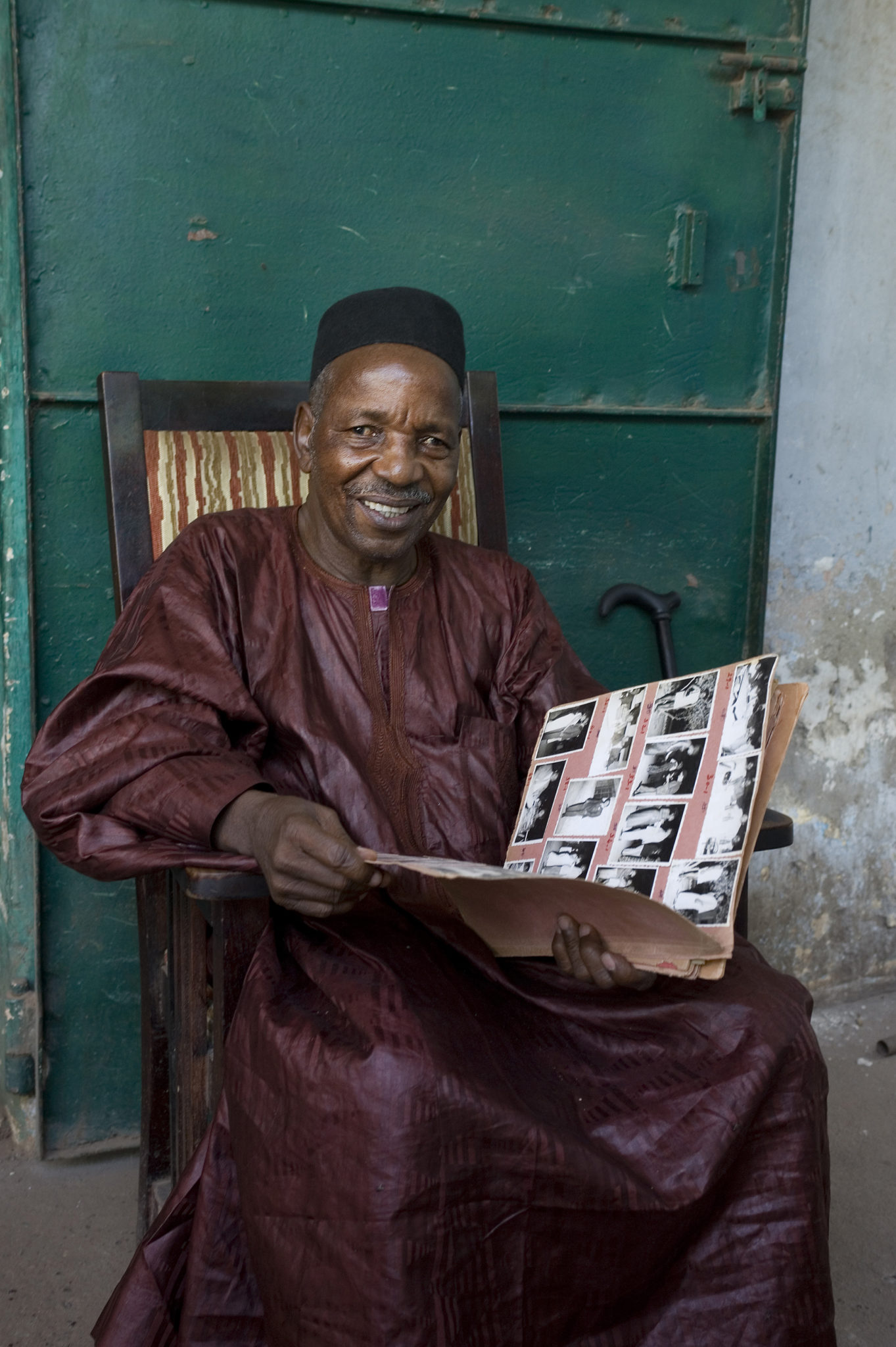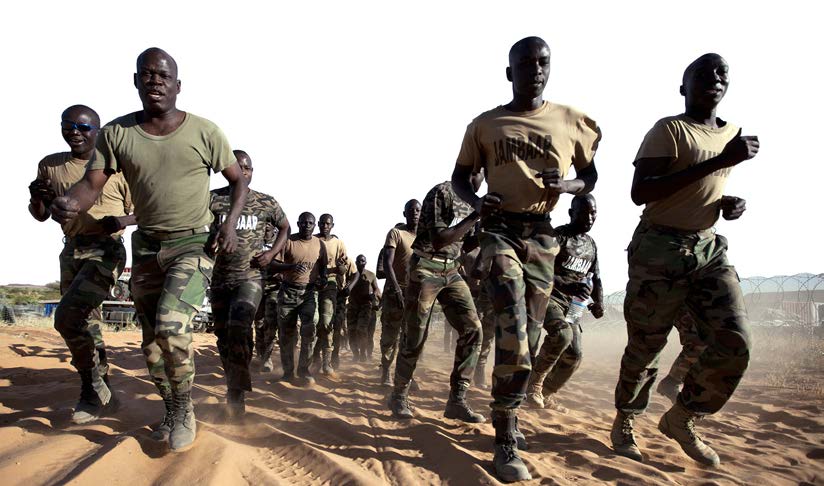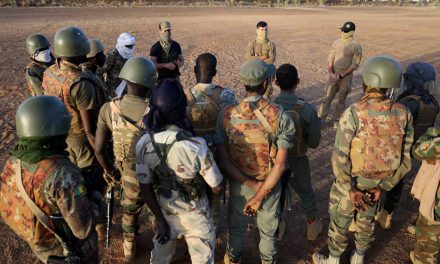African intellectuals: occident anxiety
A spectre is haunting Africa. It is the spectre of occident anxiety. Okay, I exaggerate: it is not haunting Africa but the imagination of its intellectuals. I call it “occident anxiety”.
I began to understand this in my graduate school days. A peer from Tanzania said to me that in my choosing to study philosophy and working to be a first-rate theorist regarding African phenomena, I was engaged in a war with white people that I could not hope to win. Why, you ask? Because, according to my friend, theory is white people’s turf and they exclusively determine the terms of engagement. The irony was completely lost on my friend that he was accepting the racist characterisation, via anthropology, of African societies and culture as simple artefacts shorn of any reflective or introspective dimensions. That is, he bought the story that the ideologists of global white supremacy love to tell: that Western genius was born of autarky and no one else witnessed that birth, much less played a role at its christening.
Yet those who know history know that the birth of European consciousness was midwifed by the native peoples of the New World; that its supposedly pure parentage manufactured in the 18th and 19th centuries for western civilisation was soiled indelibly by bastardy marked by the denial of Egyptian influence; and that Greece was a beneficiary of the ferment that was Mediterranean culture, to which it was one of several contributors in ancient times. By allowing himself to buy into the ideological history of the West, my friend turned a human inheritance into a local patrimony and removed from himself and other Africans their entitlement to put their mouth in the matter of reason, including its modern inflection, since our forebears were present, if not at its birth, at least at its christening.

Photo: iStock
By doing so, I realised, my friend was indulging – unconsciously, or at least unwittingly – an anxiety about Africa’s place in the world. Now, as far as I know, anxieties are not positive things. Often, they are mere irritants. Sometimes, though, they are quite debilitating. Depending on their severity, what start out as mere irritants can quickly escalate into debilitating disorders. Whether mere irritant or debilitating disorder, anxieties are psychical complexes and they go to the very heart of our attitudes; modes of representation, self and collective; responses to others, and just generally how we respond to our place in the world and others’ perception and/or understanding of same.
Before I outline the details of this anxiety, one final clarification is in order. I call the condition “occident anxiety” and not “occidental anxiety” because this is not an affliction that the occident, generally identified with the so-called West, suffers from. It is not an attitudinal orientation to be found among “westerners”. Rather, it is an anxiety about the occident, that is, the West.
How do we identify when African intellectuals, especially academics, are in the grip of this disorder? What are the symptoms of occident anxiety?
Occident anxiety, like other psychical complexes, sometimes breaks out as a phobia – hatred or fear of its object; at other times, it manifests as a mania — unreasoning enthusiasm for the other — or even a philia — a love of its object. It is a cathexis that has for its object “the West” and is best captured by the on-the-surface innocuous question: “What would X think of what I do?” X here refers to “the West and westerners” generally. This question pervades the African academic imaginary and it usually erupts in phobia, the irony of which is often lost on its sufferers. We will come back to this point presently.
When we have elections it is because the West wants us to have elections. When we fail to elect the right people, it is because the West will not let us choose those we want to rule over us. When we wish to change anything about our lives in the political and economic sphere, we are always anxious about how the choice would be viewed by the West. And whether and how far we are willing to cooperate in our own humiliation by the Chinese in the name of “helping” us “develop” our resources is a factor of how much we are able to bring ourselves to hate the West for daring to tell us how we conduct ourselves or how our governments should behave towards us, their citizens.
Such is this anxiety about what the West thinks, or will think, that it is difficult for our scholars to acknowledge that Africa – and it must always be Africa – suffers any lack when it comes to ideas, social and political structures, or ideational institutions and processes. It is as if to acknowledge any lack is to validate the claims of white supremacy. We are petrified into thinking, erroneously to be sure, that to acknowledge any borrowing from the so-called West would mean that the white supremacists are right; Africa is bereft of any original contribution to make to the world’s intellectual feast. It is just as bad when we find anything that we consider to be an African contribution: we must essay to show that it is quite unlike anything to be found in the West. For to find anything right with, or in the West, is to justify western imperiousness.
Such is our obsession with the West that it has become the sun around which the entire historiography of Africa revolves. This is manifested in the fact that colonialism is the pivot on which the periodisation of our history turns. Africa is the only place that I know where history has only three periods: pre-colonial, colonial, and post-colonial. This simplistic historiography has severe implications for knowledge production as well as our understanding of the evolution of societies, institutions, ideas, practices and processes across the continent. So dominant is this preoccupation with colonialism – yes, you guessed it, western colonialism – that it obscures our understanding of intra-African colonial subjugation and its histories.
Given that European colonialism did not last for any appreciable time – nowhere in the continent (except for the former Cape Colony) did any European colonialism last for up to two hundred years – it is scandalous that it has become the pivot of our historiography. Unfortunately, this preoccupation with European colonialism means that the further away we get from colonialism, the less interest African scholars evince in studying it. It is why we produce so few archaeologists, classicists, paleoanthropologists or paleobotanists. We are all too happy instead to mythify our history and refer to easily dateable events as if they happened in some remote past. Our dances have no history: they are eternal. Our cuisines have not evolved over time with specific entries and exits for particular dishes or ingredients. Our fashion has remained unchanged for millennia.
Ironically, the primary consumers of this upside-down narrative about Africa and its phenomena are the same people who triggered the anxiety: the West. Much of the production is driven by extraversion: made for export. Journals outside Africa need the exotica from Africa, not so much for their education but for their titillation and the reinforcement of the metaphysics of difference that absolutises African difference into a natural thing. There is hardly any internal discourse in the continent; not even within individual countries. Despite all the prattle about decolonising the mind and the disciplines within Africa, there is hardly any investment in local languages, very few outlets for the dissemination of knowledge locally, and there is more concern to place pieces in “international journals” even though, at a fundamental level, every international journal has a specific locale from which it originates and, to that extent, is local.
Occident anxiety reinforces our need to be certified by the West. Much of what we produce, how we think of what is worthy of study, and the like, is determined by which foundation, which scholarship, which institution in the West, is interested in putting up the funding for our proposed research. The biggest scandal lies in the fact that the language in which we articulate our anxiety and the sources from which we often draw evidence to refute racist notions about us come from the self-same anthropologistic problematic that defined us out of the human stream in the first place.
How can we tell that a scholar is in the throes of occident anxiety? There are many telltale signs. First, because it is more important that we not allow contamination from the bad West, it is less important that an idea be correct or adequate or an argument be valid or sound; it is more important that it has the right pedigree. So what if communalism in other climes has been implicated in limiting the ability of the individual to be different, or even eccentric? Our African proponents are more concerned to underscore its correctness and relevance to Africa because it is “African”! Related to this is a persistent desire to delegitimise those of us who seek to engage our inheritance in a critical way and locate it, as it should be, in dialogue with other human traditions and practices. If we do as much as let it slip that our alternatives might undermine the integrity of what is being peddled as African stuff, we are immediately accused of being stalking horses for the West, westernism, westernisation, or what have you. Any hint of western inspiration is, prima facie, a disqualification.
Consequently, African scholars are forever looking for homegrown equivalents of western concepts without bothering to develop the found terms into usable concepts. Occident anxiety is what leads us always to think that if we cannot show that it is “homegrown”, it cannot be authentic – as if being authentic is a synonym for being right or effective. African intellectuals think that authenticity must mean defining themselves against the West. Whatever it is they take the West to be, Africa must be the opposite or, minimally, unlike it. In particular, they identify the West with some sort of ownership over reason; therefore, almost by definition, Africa cannot be similarly identified. Occident anxiety abounds in ironies even as it remains oblivious of them.
Occident anxiety can be easily cured. First, abandon any racism-inflected metaphysics of difference that takes Africa out of the normal circuit of human doing and thinking. African problems are contingent iterations of human problems – no more, no less. To lack is human. Civilisations have always been characterised by hybridity. No lack is peculiarly African. Finally, stop talking about Africa and African phenomena as if they were simple; few things in life are simple. African phenomena must always be thought in their complexity and this is what generates theory, which is deployed to make sense of them. Africa deserves no less.
Olúfẹ́mi Táíwò is a teacher, thinker and humanist, working out of the Africana Studies and Research Center at Cornell University in the US. His research interests include philosophy of law, social and political philosophy, Marxism, and African and Africana philosophy. His writings have been translated into French, Italian, German, and Portuguese. He has taught at universities in Canada, Nigeria, Germany, South Korea, and Jamaica.













